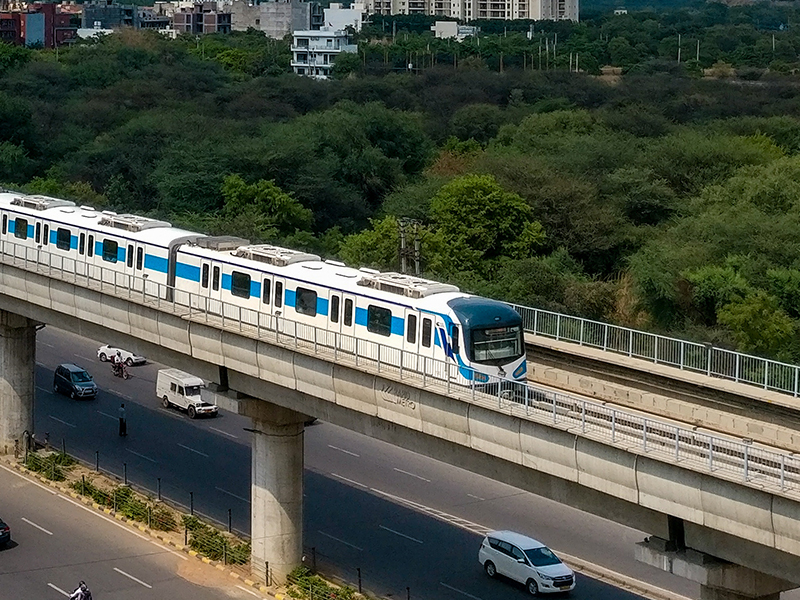
In the realm of infrastructure development, Haryana stands at the forefront, with a plethora of projects aimed at bolstering connectivity across the state. Among these endeavors, the Haryana government’s announcement of a new metro line linking Delhi with the National Cancer Institute (NCI), Badsa in Jhajjar, marks a significant milestone. This ambitious metro link, extending along the Dwarka expressway, promises to revolutionize connectivity in the region.
One of the most notable advantages of this metro link is its potential to streamline access to essential healthcare services. Patients from across the country traveling to Delhi for treatment at institutions like AIIMS (Jhajjar) will find their journey significantly shortened, with the NCI accessible within a mere half-hour. Moreover, the metro line is poised to alleviate the daily commuting woes of local residents, providing a convenient alternative to the current long-distance travel to metro stations at Huda City Centre, Iffco Chowk, or MG Road, which are situated 15 to 20 kilometers away.
In an era characterized by rapid urbanization, the importance of efficient public transportation systems cannot be overstated. Recognizing this need, the Haryana Mass Rapid Transport Corporation (HMRTC) has embarked on an ambitious mission to enhance connectivity through multiple metro projects across the state. By strategically mapping out metro routes, the corporation aims to interconnect densely populated residential areas, commercial centers, and industrial zones, particularly in Gurgaon, thereby significantly reducing commuting times and fostering seamless travel within the state.
The impact of these metro projects extends beyond mere transportation improvements; they are poised to spark a revolution in real estate development. Just as the Dwarka expressway catalyzed a boom in the real estate sector, the proposed metro link is expected to further invigorate the market. Real estate promoters, industrialists, and entrepreneurs are eagerly eyeing investment opportunities in the areas along the metro corridors, anticipating a surge in demand for commercial and residential properties.
The state government’s proposal to construct a 9-kilometer link road connecting the Dwarka expressway with AIIMS/NCI Jhajjar near KMP, where Flipkart plans to establish Asia’s largest warehouse, further underscores the potential economic growth facilitated by these infrastructure initiatives.
Signature Global, one of the city’s leading real estate promoters, has lauded the government’s metro plan, recognizing its role in accelerating economic activities and improving amenities in the region.
Experts foresee a ripple effect of enhanced connectivity, with investments flowing into areas along metro corridors, leading to the development of vibrant commercial complexes, residential projects, and entertainment hubs. This economic stimulus, in turn, will contribute to job creation, bolster property values, and usher in an era of prosperity for Haryana.